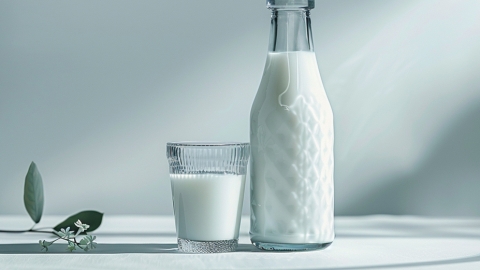Can you drink milk when drunk?
In general, whether it is advisable to drink milk after alcohol intoxication depends on the individual's specific physical condition and symptoms. If any discomfort occurs, prompt medical attention is recommended. The detailed analysis is as follows:

If the intoxicated person is conscious, with no obvious symptoms such as vomiting, nausea, or abdominal bloating, and has no history of milk allergy or lactose intolerance, drinking a moderate amount of warm milk is generally acceptable. Warm milk is gentle in texture and can form a protective layer on the gastric mucosa, reducing direct irritation from alcohol. Additionally, the protein and water in milk help replenish bodily fluids and nutrients depleted by alcohol, alleviating post-drinking dryness and gastric burning sensations, thus helping to reduce physical discomfort.
However, if the intoxicated person is confused or unconscious, frequently experiencing vomiting or nausea, or has pre-existing lactose intolerance or milk allergy, drinking milk is not recommended. Consuming milk while unconscious may lead to coughing or aspiration, potentially causing airway obstruction. Drinking milk during active vomiting may increase the stomach’s burden and worsen vomiting. Individuals with lactose intolerance or milk allergy may develop additional symptoms such as bloating, diarrhea, or rashes, further harming their health.
Before considering milk consumption after drinking, one should first assess the person’s level of consciousness and physical response—milk should be avoided if the person is disoriented or showing significant discomfort. If consumed, warm milk is preferable to avoid gastrointestinal irritation from cold temperatures, and it should be taken in small sips slowly, avoiding excessive intake at once. If symptoms such as worsened vomiting, bloating, or difficulty breathing occur after drinking milk, consumption should be stopped immediately and appropriate measures taken; seek medical help if necessary. Additionally, adequate rest and hydration are important after alcohol consumption to support recovery.








